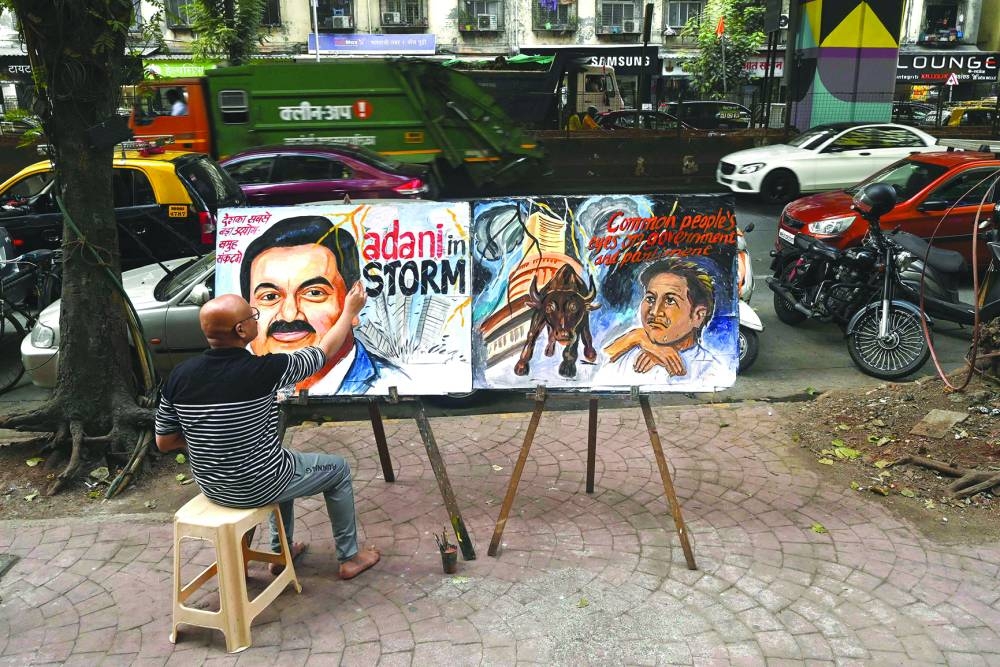The combined market cap of Adani Group’s listed units has collapsed by more than $120bn - about half of the group’s value - since US short-seller Hindenburg Research released an explosive report last week.
It accused Adani of accounting fraud and artificially boosting its share prices, calling it a “brazen stock manipulation and accounting fraud scheme” and “the largest con in corporate history”.
India remained “an absolutely well governed” country and a “very well regulated financial market”, Sitharaman told broadcaster News18.
“One instance, however much talked about globally, I would think is not going to be indicative of how well Indian financial markets have been governed,” Sitharaman said.
The minister said public sector financial institutions had released detailed statements showing they had limited exposure to Adani Group and would not be significantly affected by the share crash.
“I think the investor confidence which existed before shall continue even now,” she added.
Earlier, both houses of India’s parliament were adjourned yesterday amid chaotic scenes as some lawmakers demanded an inquiry following the meltdown of shares in Adani’s group companies, which some fear could spark wider financial turmoil.
Adani Group, one of India’s top conglomerates, has rejected the criticism and denied wrongdoing in detailed rebuttals, but that has failed to arrest the unabated fall in its shares.
For Adani, a former school drop-out from Gujarat, the western home state of Indian Prime Minister Narendra Modi, the crisis presents the biggest reputational and business challenge of his life, as his firm struggles to assuage investor concerns.
Credit ratings agency Moody’s warned yesterday the share plunge could hit the group’s ability to raise capital, although peer Fitch saw no immediate impact on its ratings.

